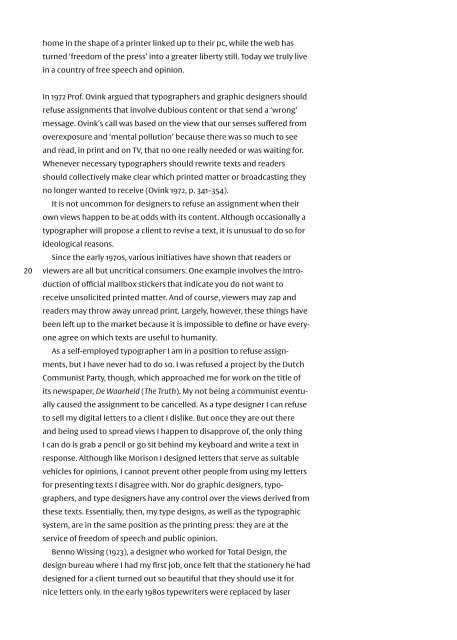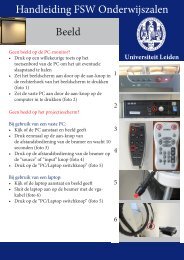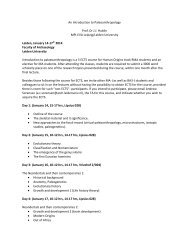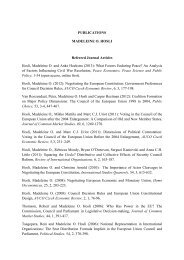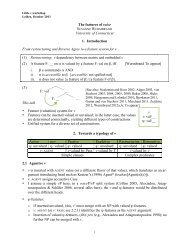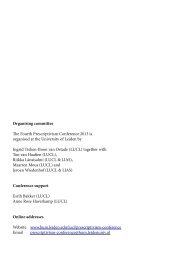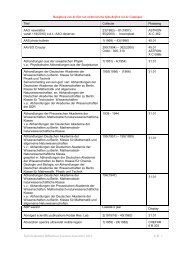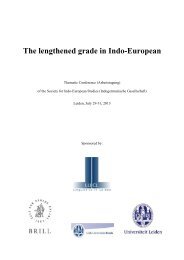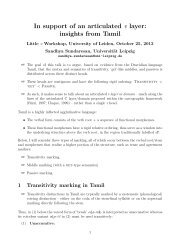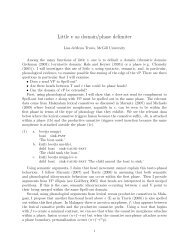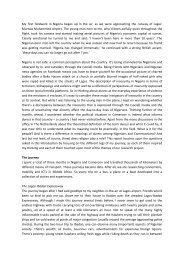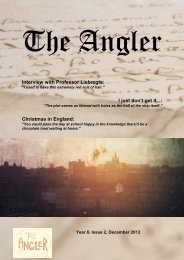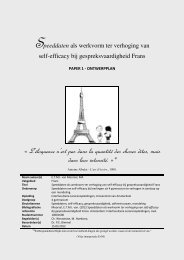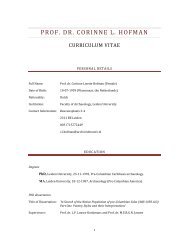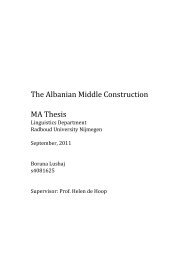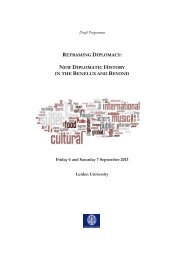Typografie als voertuig van de wetenschap - Universiteit Leiden
Typografie als voertuig van de wetenschap - Universiteit Leiden
Typografie als voertuig van de wetenschap - Universiteit Leiden
Create successful ePaper yourself
Turn your PDF publications into a flip-book with our unique Google optimized e-Paper software.
20<br />
home in the shape of a printer linked up to their pc, while the web has<br />
turned ‘freedom of the press’ into a greater liberty still. Today we truly live<br />
in a country of free speech and opinion.<br />
In 1972 Prof. Ovink argued that typographers and graphic <strong>de</strong>signers should<br />
refuse assignments that involve dubious content or that send a ‘wrong’<br />
message. Ovink’s call was based on the view that our senses suffered from<br />
overexposure and ‘mental pollution’ because there was so much to see<br />
and read, in print and on TV, that no one really nee<strong>de</strong>d or was waiting for.<br />
Whenever necessary typographers should rewrite texts and rea<strong>de</strong>rs<br />
should collectively make clear which printed matter or broadcasting they<br />
no longer wanted to receive (Ovink 1972, p. 341–354).<br />
It is not uncommon for <strong>de</strong>signers to refuse an assignment when their<br />
own views happen to be at odds with its content. Although occasionally a<br />
typographer will propose a client to revise a text, it is unusual to do so for<br />
i<strong>de</strong>ological reasons.<br />
Since the early 1970s, various initiatives have shown that rea<strong>de</strong>rs or<br />
viewers are all but uncritical consumers. One example involves the introduction<br />
of official mailbox stickers that indicate you do not want to<br />
receive unsolicited printed matter. And of course, viewers may zap and<br />
rea<strong>de</strong>rs may throw away unread print. Largely, however, these things have<br />
been left up to the market because it is impossible to <strong>de</strong>fine or have everyone<br />
agree on which texts are useful to humanity.<br />
As a self-employed typographer I am in a position to refuse assignments,<br />
but I have never had to do so. I was refused a project by the Dutch<br />
Communist Party, though, which approached me for work on the title of<br />
its newspaper, De Waarheid (The Truth). My not being a communist eventually<br />
caused the assignment to be cancelled. As a type <strong>de</strong>signer I can refuse<br />
to sell my digital letters to a client I dislike. But once they are out there<br />
and being used to spread views I happen to disapprove of, the only thing<br />
I can do is grab a pencil or go sit behind my keyboard and write a text in<br />
response. Although like Morison I <strong>de</strong>signed letters that serve as suitable<br />
vehicles for opinions, I cannot prevent other people from using my letters<br />
for presenting texts I disagree with. Nor do graphic <strong>de</strong>signers, typographers,<br />
and type <strong>de</strong>signers have any control over the views <strong>de</strong>rived from<br />
these texts. Essentially, then, my type <strong>de</strong>signs, as well as the typographic<br />
system, are in the same position as the printing press: they are at the<br />
service of freedom of speech and public opinion.<br />
Benno Wissing (1923), a <strong>de</strong>signer who worked for Total Design, the<br />
<strong>de</strong>sign bureau where I had my first job, once felt that the stationery he had<br />
<strong>de</strong>signed for a client turned out so beautiful that they should use it for<br />
nice letters only. In the early 1980s typewriters were replaced by laser


